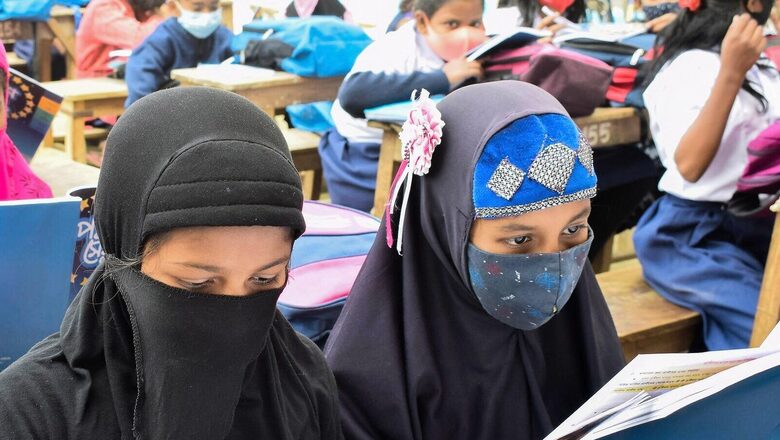
views
Education is the development of one’s knowledge and character. It shapes one’s mind and personality; it empowers one with knowledge and skillsets and it facilitates wholesome and healthy living. However, when the education system segregates learners along the lines of caste or community, it affects the holistic growth of a nation.
In the current scenario, when our young learners are all set for embracing the new normal in the education system and the huge changes in learning, they should not be distracted by tangential discussions. Our country still grapples with several issues related to education. The literacy rate in India, as per the FICCI Envisioning India 2030 report, is currently at 74 per cent as opposed to the global literacy rate of 86.3 per cent.
Read | 92% Kids Lost Language Skills, 82% Lost Math. Its State of Emergency in Education: Anurag Behar
We have learners from remote areas who do not have access to even basic facilities of education. We should not be forgetting the fact that many poor people in our country still send their children to work instead of education so that they can run their families. It is also high time we realise the need to fill up the learning loss suffered by students in the absence of face-to-face learning.
The online learning adopted during the school and college closure due to the pandemic has not reached the students on the wrong side of the digital divide. According to the latest report by Boston Consulting Group (BCG), 40 per cent to 70 per cent of children in India didn’t have a digital device at home and over 80 per cent of teachers expressed the impossibility of maintaining emotional connection during online classes.
As a result, the learners have been confused, distressed, and frustrated to some extent. The BCG report states that a student who lost a year of learning will only be able to recuperate that loss fully in 9 to 14 years. On top of it, students have had to face social-emotional learning loss as well.
Students need to focus on education and are not in a position to handle any intolerance, prejudices in the name of religion or community. Our education system should not be embroiled in the talk of any religious symbols like kada, turbans, headscarves, bindis, jewellery, vibhooti, or anything else for that matter. It is beyond any caste, creed, community, or religious practice.
One is reminded of Swami Vivekananda’s quote here: “A nation is advanced in proportion to education and intelligence spread, not the religion it follows”.
At this juncture, we should not be indulging in any entanglement related to caste, class, creed, or religion. Rather our focus should be on revamping the lost academic system, reigniting the passion of our learners, motivating them, and counselling them. Our priority should be on the effective integration of digital tech-based learning and guiding students towards a better future.
We must focus on providing inclusive and holistic education. Let’s avoid the squabbles like the one underway about hijabs or saffron shawls. It’s time to motivate our learners towards a higher purpose in life so that they can serve the world in a better and more harmonious way. Let’s abide by our own original ethos ‘Vasudhaiva Kutumbakam’ and facilitate education for one and all.
India is a secular country that respects diversity and multiculturalism in all contexts. This message should reach out to every single Indian. Education should be at the core of the recovery plan for the government. Just reopening the institutions would not solve our problem. We need to be proactive towards recovering learning. We must be focused on reinventing education rather than be diverted by the debates over the dresses of learners.
— The author is the director, Jaipuria Institute of Management, Ghaziabad. Views expressed in the article are that of the author and not represent the views of the organisation
Read all the Latest Education News here




















Comments
0 comment